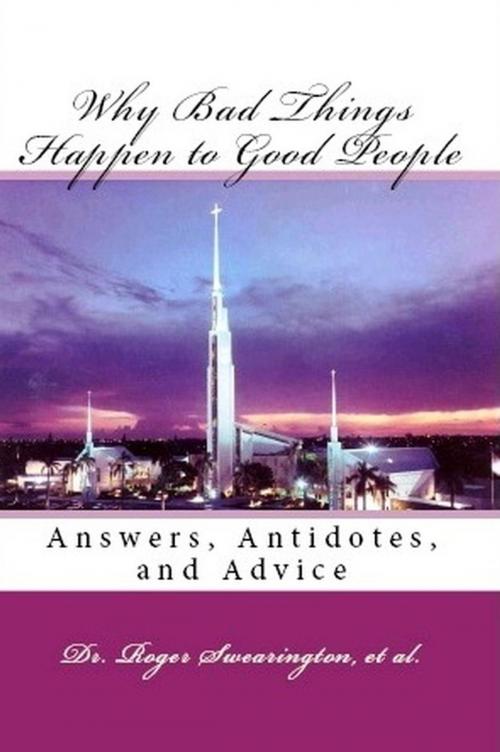Why Bad Things Happen to Good People Answers, Antidotes, and Advice
Nonfiction, Religion & Spirituality, Bible & Bible Studies, Reference, Commentaries| Author: | Rev. Billy Graham, Adrian Rogers, John A. Huffman, Jr., Thomas K. Tewell, James Kennedy, William Bouknight, Reverend Chuck Smith, Michael W. Foss, Robert Anthony Schuller, Robert H. Schuller, Dr. Roger Swearington | ISBN: | 9781544295879 |
| Publisher: | M. Stefan Strozier | Publication: | March 18, 2017 |
| Imprint: | Language: | English |
| Author: | Rev. Billy Graham, Adrian Rogers, John A. Huffman, Jr., Thomas K. Tewell, James Kennedy, William Bouknight, Reverend Chuck Smith, Michael W. Foss, Robert Anthony Schuller, Robert H. Schuller, Dr. Roger Swearington |
| ISBN: | 9781544295879 |
| Publisher: | M. Stefan Strozier |
| Publication: | March 18, 2017 |
| Imprint: | |
| Language: | English |
The authors are: Billy Graham, Adrian Rogers, John A. Huffman, Jr., Thomas K. Tewell, James Kennedy, William Bouknight, Reverend Chuck Smith, Michael W. Foss, Robert Anthony Schuller, Robert H. Schuller, Dr. Roger Swearington. Why bad things happen to good people is a topic that has increasingly captured my attention-and for two principal reasons: First, the number of dedicated Christians and Jews to whom this question seems to remain quietly disturbing-in times of personal crisis, occasionally even evoking a desperate plea: Why, God? Second, the effect upon agnostics. This appears even more devastating and often more decisive: "If this is how Christianity or Judaism works in times of need; if this is how God operates, I'm not interested!" Such is not an uncommon agnostic's response. There are, no doubt, a number of other personal, historical, sociological, and family factors in play, which would more precisely define any given agnostic's reluctance to accept God or to join a church or synagogue. World Audience Publishers, New York www.worldaudience.org
The authors are: Billy Graham, Adrian Rogers, John A. Huffman, Jr., Thomas K. Tewell, James Kennedy, William Bouknight, Reverend Chuck Smith, Michael W. Foss, Robert Anthony Schuller, Robert H. Schuller, Dr. Roger Swearington. Why bad things happen to good people is a topic that has increasingly captured my attention-and for two principal reasons: First, the number of dedicated Christians and Jews to whom this question seems to remain quietly disturbing-in times of personal crisis, occasionally even evoking a desperate plea: Why, God? Second, the effect upon agnostics. This appears even more devastating and often more decisive: "If this is how Christianity or Judaism works in times of need; if this is how God operates, I'm not interested!" Such is not an uncommon agnostic's response. There are, no doubt, a number of other personal, historical, sociological, and family factors in play, which would more precisely define any given agnostic's reluctance to accept God or to join a church or synagogue. World Audience Publishers, New York www.worldaudience.org















